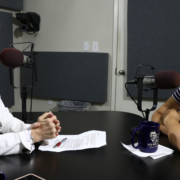National Consumers League applauds Congress for surprise billing protections for consumers
For immediate release: December 22, 2020
Media contact: National Consumers League – Carol McKay, carolm@nclnet.org, (412) 945-3242 or Taun Sterling, tauns@nclnet.org, (202) 207-2832
Washington, DC – The National Consumers League welcomes the inclusion of long-needed surprise billing protections in the COVID Relief Omnibus Spending Bill.
Surprise billing happens when a patient’s insurance doesn’t cover a procedure provided by an out-of-network physician, something patients don’t know or realize when they get a procedure. An estimated one in five emergency visits and one in six inpatient admissions will trigger a surprise bill, which can run into the thousands of dollars.
Medical debt disproportionately drives people into bankruptcy. Bill collectors and hospitals often layer on fees, interest, and penalties, driving the original costs way up. A 2019 study published in the American Journal of Public Health found that 530,000 bankruptcies filed annually are because of debt accrued as a result of treatment for medical illness.
This statement is attributable to NCL Executive Director Sally Greenberg:
“We greatly appreciate the bipartisan leadership of Senators Maggie Hassan (D-NH) and Bill Cassidy (R-LA) in getting the surprise billing language over the finish line. We also thank House Energy and Commerce Committee Chairman Frank Pallone, Jr. (D-NJ), Ranking Member Greg Walden (R-OR), Senate Health Committee Chairman Lamar Alexander (R-TN), and Ranking Member Patty Murray (D-WA) for their early leadership on this issue. This is a shining example of working across the aisle for the betterment of consumers.
Consumers can breathe a huge sigh of relief because under the bill—including the cost of an air ambulance—consumers will be ‘held harmless’ when exposed to out-of-network costs. Once this bill is law, consumers can expect that fees charged will be far more affordable and predictable at in-network rates. We are grateful to Congress for recognizing surprise billing as a predatory practice from which consumers need protection. The committee leadership not only helped to pass a bill but launched an investigation.
After two years of debate and discussion on how health care providers and health plans will negotiate these extra costs, it was agreed that patients should be taken out of the middle of dispute resolution processes. Now, we finally have a workable system for protecting consumers.”
###
About the National Consumers League (NCL)
The National Consumers League, founded in 1899, is America’s pioneer consumer organization. Our mission is to protect and promote social and economic justice for consumers and workers in the United States and abroad. For more information, visit www.nclnet.org.


 By NCL Director of Health Policy Jeanette Contreras
By NCL Director of Health Policy Jeanette Contreras

















